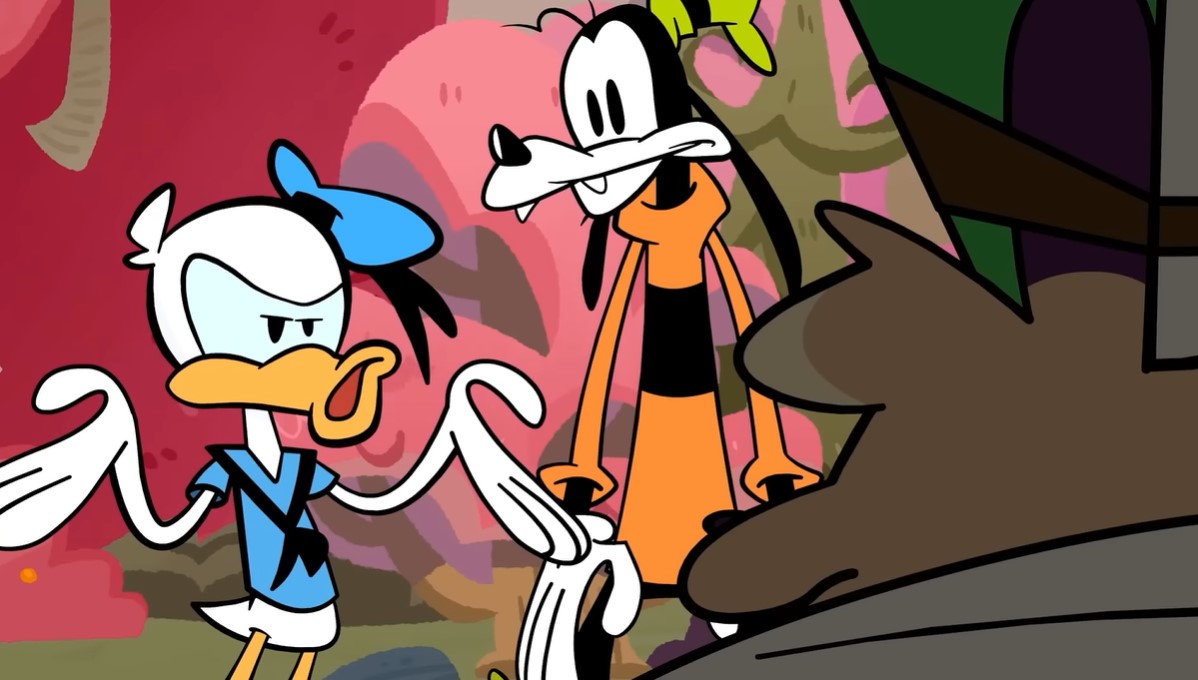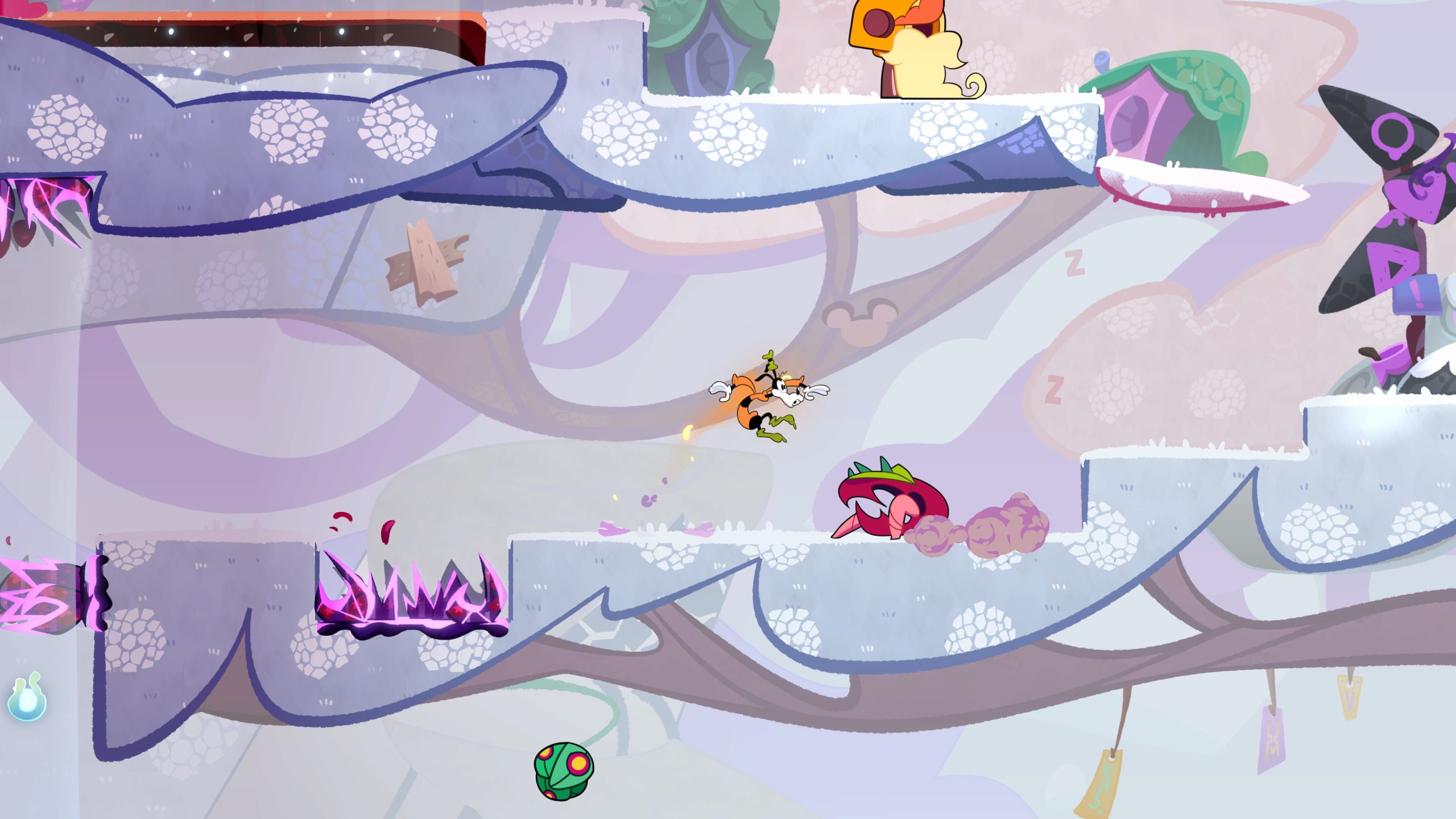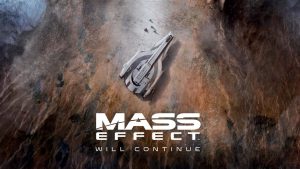
Disney Illusion Island turned out better than I was expecting. Even though I’m the sort of player that’s pretty much guaranteed to like anything Metroidvania, going into Illusion Island, I knew that thanks to its focus on appealing to a wider audience, it probably wasn’t going to be the sort of Metroidvania I usually enjoy. In that, at least, I was right, and yet I ended up enjoying the game anyway. It’s not a standout experience that’ll rank among the genre’s greats by any means, but it has quite a lot going for it, with a few elements in particular that make it a surprisingly unique experience.
Disney Illusion Island shines the spotlight on the elderly statesmen of the Disney family, i.e. Mickey, Minnie, Goofy, and Donald. The four friends are headed out to a picnic on an invitation, but quickly discover that the invitation was a ruse to get them to the mysterious island of Monoth, where the resident Tokuns have called them for aid in search of heroes. What starts out as a picnic quickly turns into a quest to recover three tomes from thieves scattered in different parts of Monoth in order to prevent guaranteed disaster for the island and its denizens. It’s a simple, straightforward setup, but it’s surprisingly effective in its execution, thanks in large part to strong, witty writing that consistently delivers chuckle-worthy humour and endearing characterization for pretty much every character you come across, not just the four icons who serve as the main stars.
"Disney Illusion Island is not a standout experience that’ll rank among the genre’s greats by any means, but it has quite a lot going for it, with a few elements in particular that make it a surprisingly unique experience."
Even better are the animations. Quite a bit of Illusion Island’s story moments and character interactions happen during gameplay and with text boxes, but every so often, the game delivers beautifully crafted, lengthy cutscenes. Not only do these boast excellent voice acting – especially for the four heroes, with all of their instantly recognizable voices and quirks – they’re also wonderfully animated. Combining impressive attention to detail and a particularly nostalgic brand of old-school hand-drawn animations, each cutscene is a joy to witness, even if what’s actually happening on the screen isn’t particularly captivating on paper.
Those excellent animations can be found throughout the game, in fact, even outside of cutscenes. Disney Illusion Island is an excellent looking game, almost to the point where it kept surprising me with its visual strengths the more I played it. The gorgeous hand-drawn art never loses its charm, backgrounds and enemies are filled with small details that lend them a great amount of personality, and the four heroes themselves move about in a way that’s consistently fun to look at. From simply walking around or jumping over a small gap to more elaborate strings of platforming maneuvers, animations in Illusion Island are crammed with love and detail, and all flow excellently into each other, so it looks like you’re always watching a classic cartoon.
Each of the four playable characters also has the exact same moveset, but each of them gets a unique animation for every move- while Donald pulls out a plunger for his wall jumps, Goofy uses a comically large fork. Where Minnie uses a parasol to glide, Donald just flaps his wings. Mechanically, there’s no difference whatsoever in how any of the characters move, but the unique animations still inject a great deal of charm into every single thing they do. No, it’s no Cuphead, but to hold every game with hand-drawn animations to that ridiculously high standard would be insanity- so let’s not.
"Combining impressive attention to detail and a particularly nostalgic brand of old-school hand-drawn animations, each cutscene is a joy to witness."
When it comes to the actual gameplay, Disney Illusion Island is much less remarkable, even if it remains enjoyable the entire time, especially once you’re past the opening section where your moveset is limited to just a simple jump. Being a Metroidvania, Illusion Island slowly doles out new movement abilities that then let you get to previously inaccessible areas. With moves like a double jump, wall jump, ground pound, grappling hook, and the like, the game isn’t particularly inventive in the abilities and power ups you unlock, but it manages to make them interesting nonetheless thanks to how it implements those mechanics.
For starters, the moment-to-moment movement always feels great. Yes, it can get a bit too floaty at times, which is obviously down to the game’s bid to be a much easier and less demanding experience, but stringing together a variety of different moves together to get through platforming challenges is always satisfying. It helps, of course, that those challenges all tend to be very well designed. They start out quite simple and straightforward, but as you get deeper into the game, they get increasingly elaborate- never on the same level of platforming-focused Metroidvanias like, say, Ori or Guacamelee, but certainly to the level where the game actually leverages its platforming mechanics in a meaningful way.
Which is good, because platforming is all there is. There is no combat whatsoever in Illusion Island, which means that even though there will be plenty of enemies that’ll lie in your path, coming in different shapes and sizes and posing different threats, the only way to get past them is to, well, get past them. Avoiding enemies is inherently less engaging than defeating them, especially in a Metroidvania platformer, and even though I do understand that that’s a choice made by developer Dlala Studios in order to be as welcoming to as many demographics as possible, it did still end up feeling like the gameplay experience was lacking a key component. That ends up impacting the boss fights as well, which are unable to deliver the set-piece bursts of action you’d expect, owing to the fact that they’re completely platforming focused (not to mention the fact that they all last a bit too long).
"Platforming challenges start out quite simple and straightforward, but as you get deeper into the game, they get increasingly elaborate- never on the same level of platforming-focused Metroidvanias like, say, Ori or Guacamelee, but certainly to the level where the game actually leverages its platforming mechanics in a meaningful way."
Of course, exploration is just as important as platforming or combat in a Metroidvania (if not even more so), and that’s another area where Illusion Island delivers a solid, enjoyable experience, even if never does anything too remarkable. The level design has a good understanding of the Metroidvania genre’s biggest strengths, and going through interconnected environments and slowly unlocking the surprisingly large map feels satisfying. There are also plenty of collectibles to collect and hidden rooms and optional challenges to find, which combines with solid environmental variety to make exploration feel appropriately rewarding. Naturally, it all operates on a much more relaxed and easygoing pace than something like Hollow Knight or Metroid Dread, so don’t expect genre-defining design- but it’s more than serviceable nonetheless.
If those are the sort of expectations you’re going into Disney Illusion Island with, there’s almost no way you’re not going to have a good time on at least some level. It’s a Metroidvania platformer, yes, but it’s much more easygoing and relaxed than the sort of games you’d ordinarily associate that category of games with. It’s bursting with charm, whimsy, and personality, and delivers consistently fun platforming. Even if it never really delivers something on a gameplay level that you’ll be thinking about days after you’ve wrapped up its 6-8 hour adventure, as a whole, it’s an easy game to recommend to all players, regardless of skill level or familiarity with the genre.
This game was reviewed on the Nintendo Switch.
Looks amazing, thanks to excellent animations and impressive attention to detail; A charming, easy-to-pick up adventure; Solid level design and fun collectibles encourage exploration; Platforming can be a lot of fun, especially when stringing multiple maneuvers together; Witty and well-written; Excellently animated cutscenes.
Lacks the complexity you might expect from most Metroidvanias; Total lack of combat is a bit disappointing; Uneven boss fights.


















